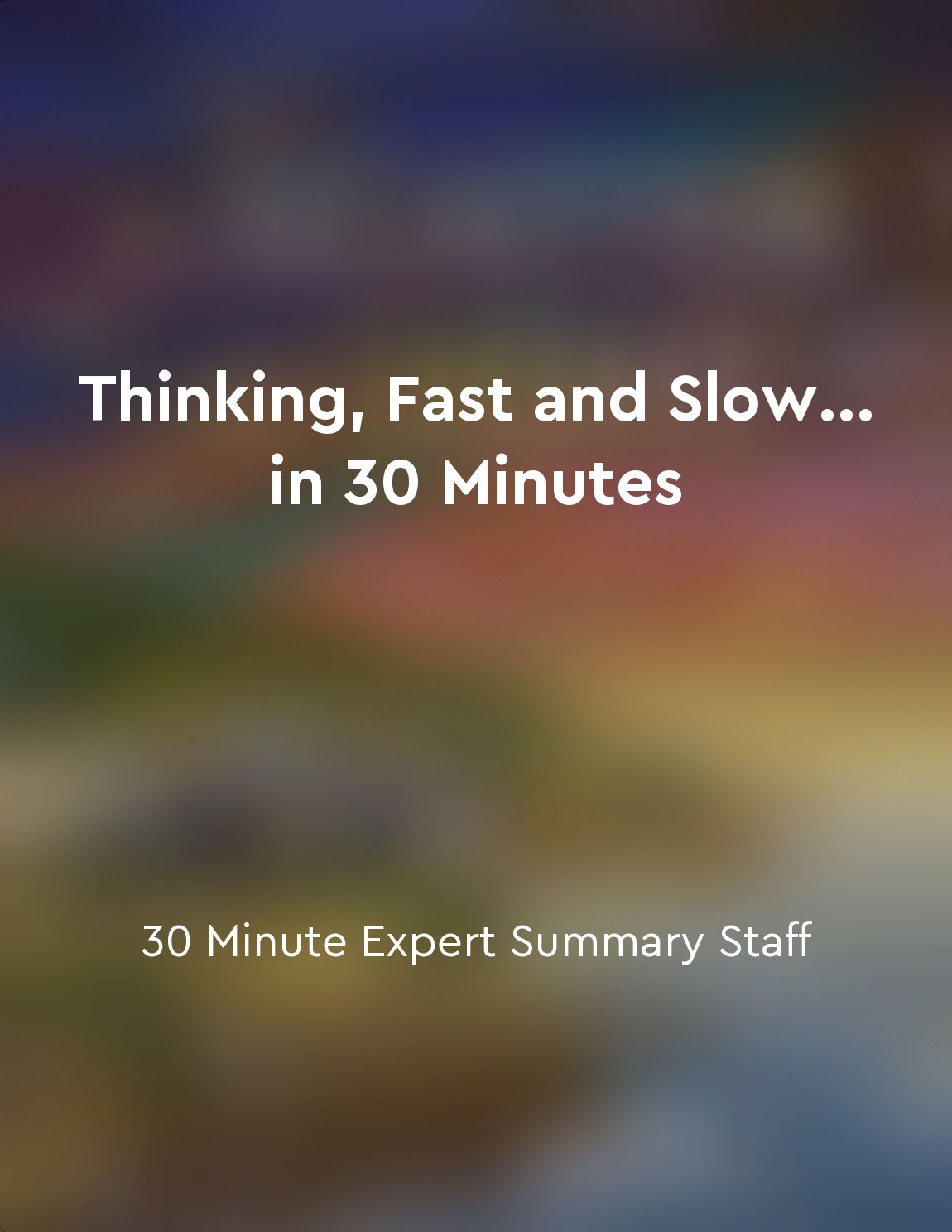Audio available in app
Prospect theory explains risk aversion from "summary" of Thinking, Fast and Slow... in 30 Minutes by 30 Minute Expert Summary Staff
When faced with decisions involving risk, people tend to exhibit risk aversion, preferring certainty over uncertainty. Traditional economic theory suggests that individuals make rational decisions by weighing the probabilities and potential outcomes of each option. However, Prospect Theory challenges this notion by proposing that people do not evaluate probabilities objectively; instead, they rely on subjective assessments based on perceived gains and losses. According to Prospect Theory, individuals are more sensitive to losses than gains, a phenomenon known as loss aversion. The fear of losing something valuable often outweighs the potential benefits of taking a risk. As a result, people tend to avoid risky choices that could lead to losses, even if the expected value suggests a positive outcome. This preference for avoiding losses influences decision-making and contributes to risk aversion. Additionally, Prospect Theory introduces the concept of reference points, which serve as benchmarks for assessing outcomes. Individuals compare the potential results of their decisions to these reference points, influencing their perception of risk and reward. When faced with a risky choice, people focus on the potential losses relative to their reference point, leading to a reluctance to take chances. Moreover, Prospect Theory highlights the role of framing in decision-making. The way information is presented can significantly impact how individuals perceive risks and rewards. By framing choices in terms of gains or losses, decision-makers can influence the perceived value of options and ultimately shape the decision-making process. This cognitive bias further contributes to risk aversion by emphasizing the potential negative consequences of risky decisions.- Prospect Theory provides valuable insights into the factors influencing risk aversion in decision-making. By emphasizing the subjective nature of risk assessment, loss aversion, reference points, and framing effects, this theory offers a more nuanced understanding of how individuals evaluate and respond to risks. Through these insights, we can better comprehend the complexities of decision-making in uncertain situations and the inherent biases that shape our choices.


